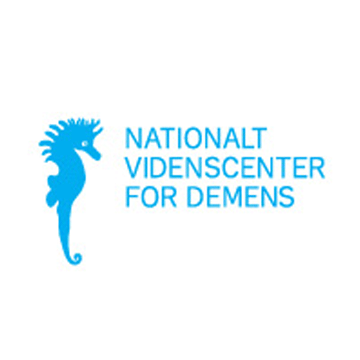ReACT
The healthcare app that supports individuals with dementia
Our extensive experience in strategically designing and tailoring apps to an organization’s need led to a collaboration with the Danish Dementia Research Center in developing ReACT, an healthcare and patient engagement app for people with dementia.
.webp?width=462&height=600&name=react%20(1).webp)
Cognitive support for rehabilitation of dementia
Neuropsychologist Laila Øksnebjerg, who is behind the research project by the Danish Dementia Research Center, conducted initial studies that showed that mobile apps favor people with dementia. However, these individuals needed several different apps to fulfill their needs, and the apps used were often too complex. Empact came up with a solution that alleviates this issue, ReACT — cognitive support for rehabilitation of dementia.
.webp)
The ReACT app efficiently gathers several functions in one calendar, like appointments, reminders, and a diary with its photos, checklists, and contacts.
Users can adapt the app to their needs and IT skills, and be logged onto their account from several devices. The ReACT app is also available for use on tablets.
ReACT enables the option to share the account with relatives. They can thus support their relative suffering from dementia by, e.g. inserting information and pictures in the calendar and diary.
Designed for and in collaboration with people with dementia
ReACT is designed and tested in collaboration with individuals with dementia, relatives, and professionals, as part of the research project by the Danish National Knowledge Center for Dementia.
Empact developed a system of notifications that meets the user's needs — for example, remembering when to get ready or getting up at the right time. ReACT works as a calendar, with features that help an individual's daily routine and memory.
To simplify things, Empact made sure animations and transitions occurred slower, and that icons were designed to resemble real-life items that individuals with dementia could immediately recognize (Skeuomorphism).

“The results show that there are great advantages in involving users in the development and testing of technology from the beginning. This ensures that the design and functionality match the needs and capacity of the target group.”
Laila Øksnebjerg, Neuropsychologist & Project Manager
THE INSTITUTION
Danish Dementia Research Center
The DDRC research program covers a wide spectrum of clinical and translational research on dementia and other cognitive diseases.

Os i Coop: The employee engagement app that connects 40.000 employees
Empact and Coop, one of Denmark's leading consumer goods retailers, teamed up to deliver Os i Coop, an employee engagement app to strengthen the organization's communication and core activities.
Lockheed Martin: Leap into the Future with Empact's AMMS
AMMS ensures employee safety, offering a daily tool for mechanics and stakeholders across platforms. Streamlining asset management, the scalable web-based AMMS platform simplifies tasks, from assignments to ordering helicopter parts. AMMS's integrates every aspect of the repair process, optimizing resources for their 100,000+ employee, 300 billion DKK defense industry powerhouse.
Sikorsky: Digital Era Hassle-Free Operations for FSR's
Crafted through a dynamic five-year collaboration between Empact and Sikorsky, this modern mobile digital workplace streamlines communication, ensures employee safety, and optimizes asset management for FSR's globally, shortening the gap between problem discovery and resolution.